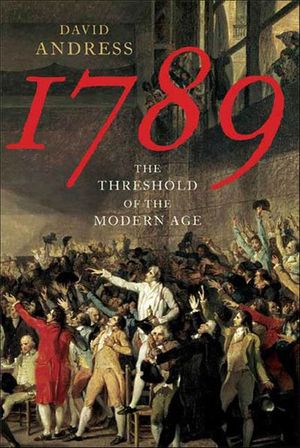1789
Published by Farrar, Straus and Giroux
The acclaimed author of The Terror examines the revolutionary transformations of the late eighteenth century in this “humane, compelling account” (The Independent, UK).
In 1789, the fates of France, the nascent United States, and their common enemy Britain, lay interlocked. Bankrupted by its support for America's revolution, France was now hurtling toward its own. The United State, hamstrung by crippling debt and inter-state rivalries, struggled to forge constitutional amendments that would become the Bill of Rights. And Britain, humiliated by its defeat in America, was in constitutional turmoil. Radical changes were in the air.
A year of revolution was crowned in two documents drafted at almost the same time: the French Declaration of the Rights of Man and the American Bill of Rights. These texts gave the world a new political language and promised to foreshadow new revolutions, even in Britain. But as the French Revolution spiraled into chaos and slavery experienced a rebirth in America, it seemed that the budding code of individual rights would forever be matched by equally powerful systems of repression and control.
In 1789, David Andress reveals how these events unfolded and how the men who led them, such as Benjamin Franklin, Thomas Paine, Emmanuel-Joseph Sieyes, and George Washington, stood at the threshold of the modern world.
BUY NOW FROM
COMMUNITY REVIEWS

